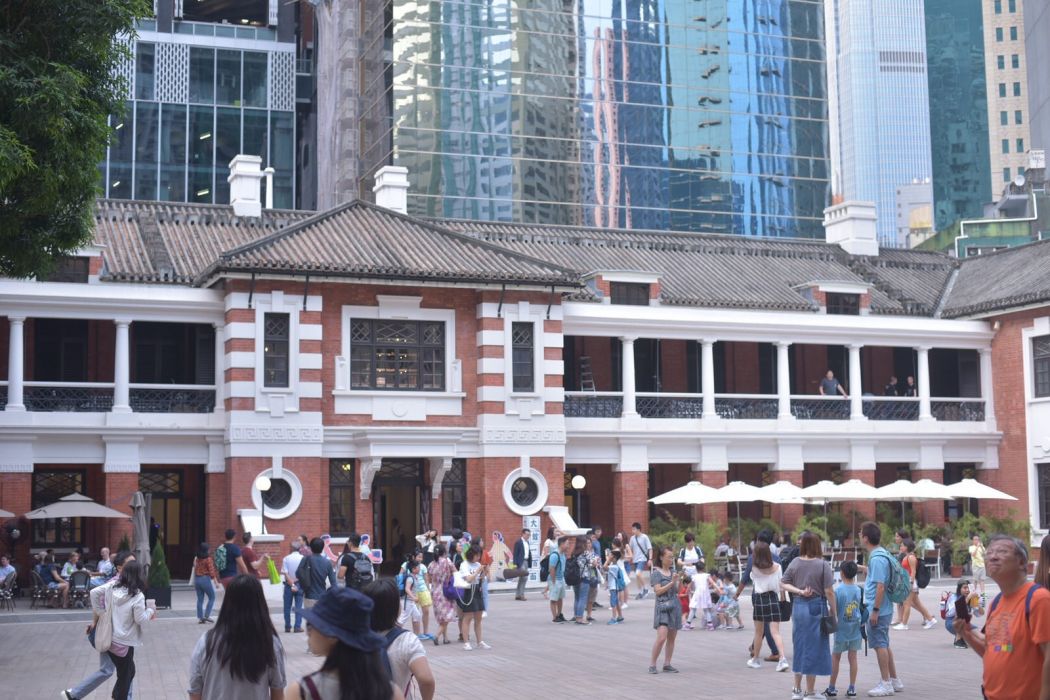Exiled Chinese writer Ma Jian has said his two events at Hong Kong’s Tai Kwun art space this week “can no longer be held.”
Ma- who was born in Qingdao but lives in exile in the UK – said no reason was given for the cancellation. An English translation of his book China Dream was published last Thursday.

Ma, 65, was scheduled to host two talks this Saturday at Central’s Tai Kwun, as part of the events of the Hong Kong International Literary Festival. He had partly planned to introduce his new book and talk about Hong Kong through the lens of literature.
But on Wednesday night, Ma tweeted: “Just been told that my two events at the Hong Kong International Literary Festival this week can no longer be held at Tai Kwun, where all the other events are taking place. An alternative venue will have to be found. No reason has been given to me yet.”
“Yes, it is Tai Kwun’s decision to cancel my two events. The Literary Festival are trying to find an alternative venue,” Ma told HKFP.
Ma said on Facebook that he will notify his readers of the new venue when it is available.
“The event time in the afternoon of November 10 should be unchanged – if I do not get ‘disappeared,’” he said.
Tai Kwun is operated by the Hong Kong Jockey Club and comprises of the former Central Police Station, Central Magistracy and Victoria Prison.
Just been told that my two events at the Hong Kong International Literary Festival this week can no longer be held at Tai Kwun, where all the other events are taking place. An alternative venue will have to be found. No reason has been given to me yet. https://t.co/wqJHs79JkW
— 马建 Ma Jian (@majian53) November 7, 2018
The introduction of Ma’s new book said it was “[a] poetic and unflinching fable about tyranny, guilt, and the erasure of history, by the banned Chinese writer hailed as ‘China’s Solzhenitsyn’.”
“In seven dream-like episodes, Ma Jian charts the psychological disintegration of a Chinese provincial leader who is haunted by nightmares of his violent past,” it continued.
“From exile, Ma Jian shoots an arrow at President Xi Jinping’s ‘China Dream’ propaganda, creating a biting satire of totalitarianism that reveals what happens to a nation when it is blinded by materialism and governed by violence and lies. Blending tragic and absurd reality with myth and fantasy, this dystopian novel is a portrait not of an imagined future, but of China today.”
Ma previously said no Hong Kong publisher was willing to publish the original Chinese version of his book, owing to its sensitivity.

Festival Organiser Phillipa Milne said updates to their programme would be announced soon: “[W]e have been asked to change the venue for two events by Tai Kwun. We aren’t speculating on the reasons for the move and instead focus on our mission of ensuring our authors are all heard.”
In a statement, literary group PEN Hong Kong noted that the art space was renovated “in partnership” with the local government, though daily operations fall under the Jockey Club Charities Trust: “PEN Hong Kong is concerned that political pressure may be a factor in Tai Kwun’s decision, given that Hong Kong has faced increasing pressure from Beijing to silence dissent.”
Writing in exile
Ma’s debut novel Stick Out Your Tongue was published in 1987 – it led to the permanent banning of his books in China. He moved to Hong Kong that year.
But Ma returned to Beijing in 1989 to take part in the pro-democracy protests. He was able to travel back and forth between Hong Kong and mainland China after the Tiananmen Massacre on June 4 that year.
He moved to Germany in 1997 after the Hong Kong Handover, before moving to the UK. He was banned from entering mainland China in 2011.
His works have been translated into more than 20 languages, and have received awards including the Index on Censorship Book Award and the Athens Prize for Literature.
HKFP has reached out to Tai Kwun for comment.
